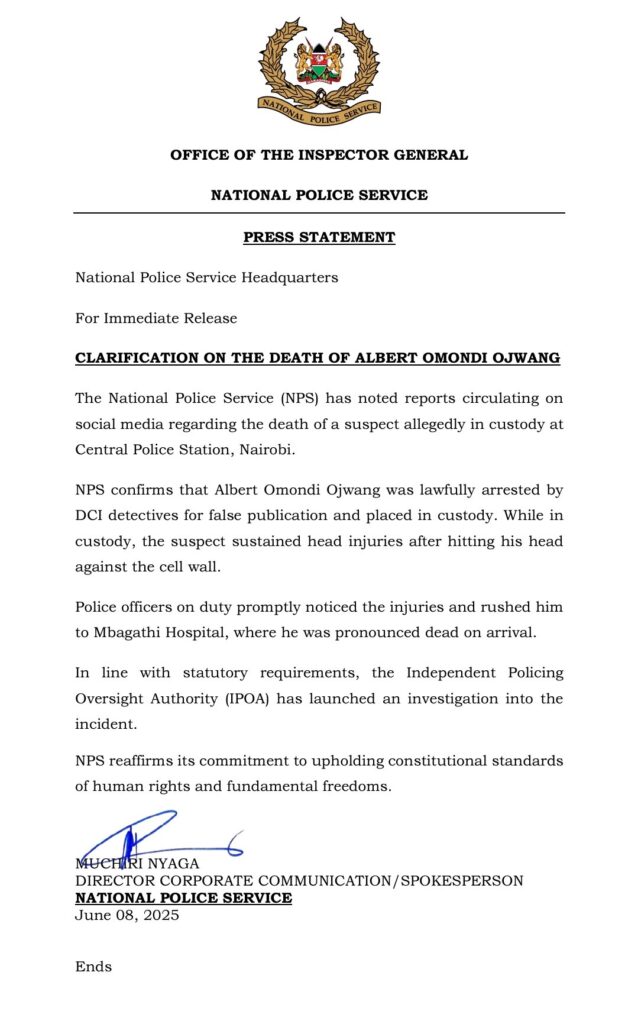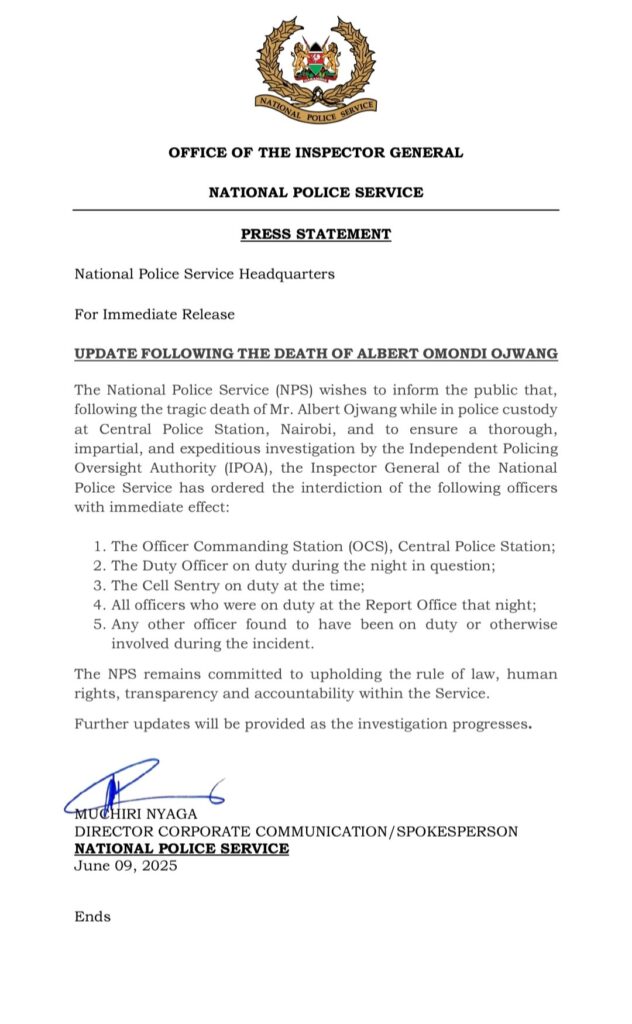A rising wave of anger and grief has gripped the country following the shocking death of social media influencer Albert Omondi Ojwang inside police custody. Once a vibrant and outspoken voice on platform X, Ojwang’s life ended under mysterious circumstances after being arrested by police.
His sudden death has left many Kenyans in pain and confusion, raising serious questions about the conduct of law enforcement in the country. What was supposed to be a simple arrest has turned into a national outcry, with people demanding answers and justice.
Cyprian Nyakundi, a well-known online commentator, was among the first to break the story and amplify it across the internet.
According to Nyakundi, Ojwang was taken from his home in Homa-Bay while having lunch with his father. The officers who arrested him did not give any clear explanation or documents to justify the arrest. They claimed he had been posting false information targeting a senior police officer with corruption accusations.
Ojwang was quickly transported to Nairobi and placed in detention at Central Police Station. Days later, the same young man was reported dead!
The official story released by the National Police Service claimed Ojwang fatally injured himself by hitting his head against a cell wall. They said he was rushed to Mbagathi Hospital where he was declared dead on arrival.

But very few Kenyans believe this version. The story has many gaps, and people are questioning how such a serious injury could happen under the watch of trained officers in one of the most secure police stations in the country.
In response to the growing pressure, several officers have now been interdicted. Those suspended include the officers who arrested Ojwang, the Officer Commanding the Station, the duty officer on shift, the cell sentry, and other staff at the report desk.

The Independent Policing Oversight Authority has now launched a full investigation. Police Spokesperson Muchiri Nyaga said the interdictions are meant to allow for an impartial process. But the public wants more than that.
People are not just angry they are tired. They want accountability and clear consequences for police officers who abuse their power.
Ojwang’s father, Meshack Opiyo, has also spoken out. He described how he watched helplessly as his son was taken away without any explanation. When he went to Nairobi to look for him, he was kept waiting for hours. Later, someone told him his son had died in custody from injuries he supposedly caused to himself.
But to Opiyo and many others, this explanation makes no sense. “They took him alive, but now he’s gone,” he said.
“I want to know who is responsible.” This case has now become a symbol of what many believe is a bigger problem. Families across Kenya have similar stories loved ones dying in police custody without any clear answers.
Human rights activists are now demanding criminal charges, not just internal discipline. They believe that unless there is true justice, such cases will continue.
“The police must not investigate themselves,” said one lawyer. “Kenyans deserve the truth.”Online, the hashtag #JusticeForOjwang is trending, with many sharing his last posts that were critical of the government and police.
To his followers, it now feels like Ojwang paid the ultimate price for speaking out.


